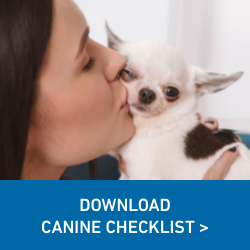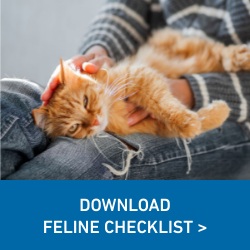Hack Pet Care with a Free Checklist!
Published May 10, 2022


Did you know May is Responsible Animal Guardian Month? Download our free monthly checklist to stay on top of your pet’s care, and see our recommendations for exercise, grooming, feeding, and more to keep your pet looking and feeling their best!
Feeding
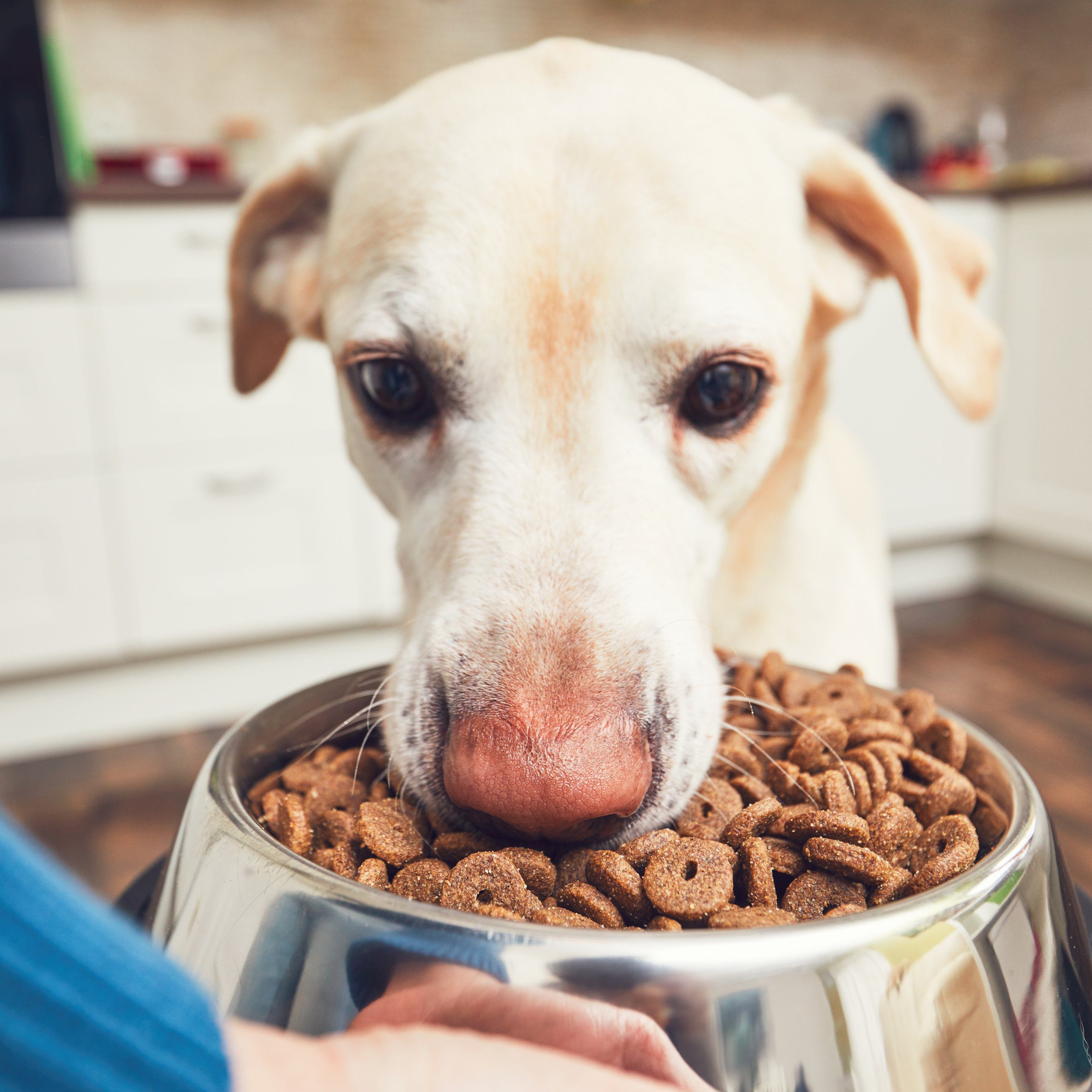

Feeding frequency will depend upon your pet’s age, health, and diet. It’s a good practice to begin with following the feeding instructions on your pet’s food packaging, but your veterinarian may recommend changes to your pet’s diet depending upon their unique health needs. You should also track your pet’s body condition score, as being over- or underweight could affect feeding recommendations.
Unless otherwise directed by your pet’s veterinarian, adult dogs and cats should usually eat twice a day.
Growing puppies and kittens need more food in proportion to their weight, but it should be provided in more frequent, smaller meals. In general, it’s recommended to feed kittens 3 meals a day up to 6 months of age. The general recommendation for puppies is 3 meals a day up to 3 or 4 months of age. Small and toy breeds, however, may be more comfortable eating smaller portions 4-6 times per day.
Feeding Resources:
- Purina Body Condition Chart
- Is It Fat or Fluff?
- The Do’s and Dont’s of Pet Diets
- Prescription Diets – Could Your Pet Benefit?
Essential Tip: Essentials PetCare clients can order Purina ProPlan and prescription foods, supplements and more with FREE home delivery! Get started here.
Grooming
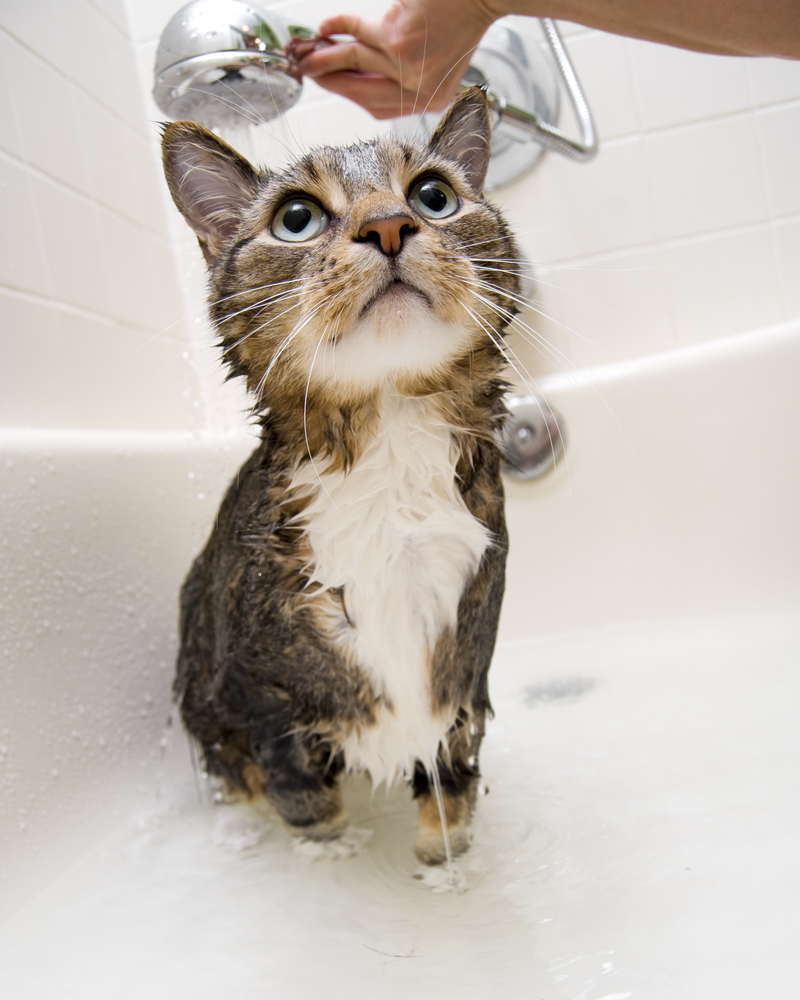

Brushing
Daily brushing will keep your pet’s coat cleaner longer and prevent painful tangles in long-haired breeds. You should also check your pet’s coat when brushing for signs of allergies or irritation and external parasites, like fleas and mites.
Bathing
Dogs should have a bath every month, and cats should have one every 4-6 weeks. Dry shampoo made for pets or a simple quick wipe with a damp rag can also keep your pet fresh between baths.
Nail Trims
We recommend trimming every 2 weeks for dogs and every 2-4 weeks for cats. You can add a nail trim to your next visit at Essentials PetCare, but here’s how to trim nails at home between veterinary visits.
Dental Care
While daily brushing is ideal, not all pets take well to brushing their teeth, especially if it was not introduced at an early age. Watch the videos below to learn how to brush your pet’s teeth and ease into this habit if your pet isn’t used to it. Of course, if you think your pet will try to bite you, leave it to the professionals.
Dogs
Cats
Grooming Resources:
Exercise/Play


Daily exercise benefits physical and mental wellbeing, and fun activities will also strengthen your bond with your pet!
Exercise doesn’t have to be tedious either, even if your furry friend is a couch potato. Work with your pet’s natural schedule. Both dogs and cats are usually most active in the morning and evening, so plan on working playtime and walks in your daily routine at these times.
Dogs
Recommendations depend upon your dog’s age and current fitness, but in general, dogs should walk at least 15 minutes, 3-4 times per day. In addition to walks, though, dogs can also have fun in the yard and house with fetch and obstacle courses. Dogs often enjoy working for their food, so you can take the opportunity to hide their food for them to search and scavenge through the house, lead them through an obstacle course, or learn a new trick at dinner time.
Cats
For cats, experts recommend short, 10- to 15-minute play sessions, ranging from 2-10 sessions daily, depending upon your pet’s age and current fitness. If your cat enjoys chasing lasers, offer a toy they can get their paws on afterward. They’ll feel much more satisfied being rewarded with “prey” after the chase.
Keeping a cat tower in your home can encourage your feline friend to stay active and play independently while you’re away as well.
Veterinary Care
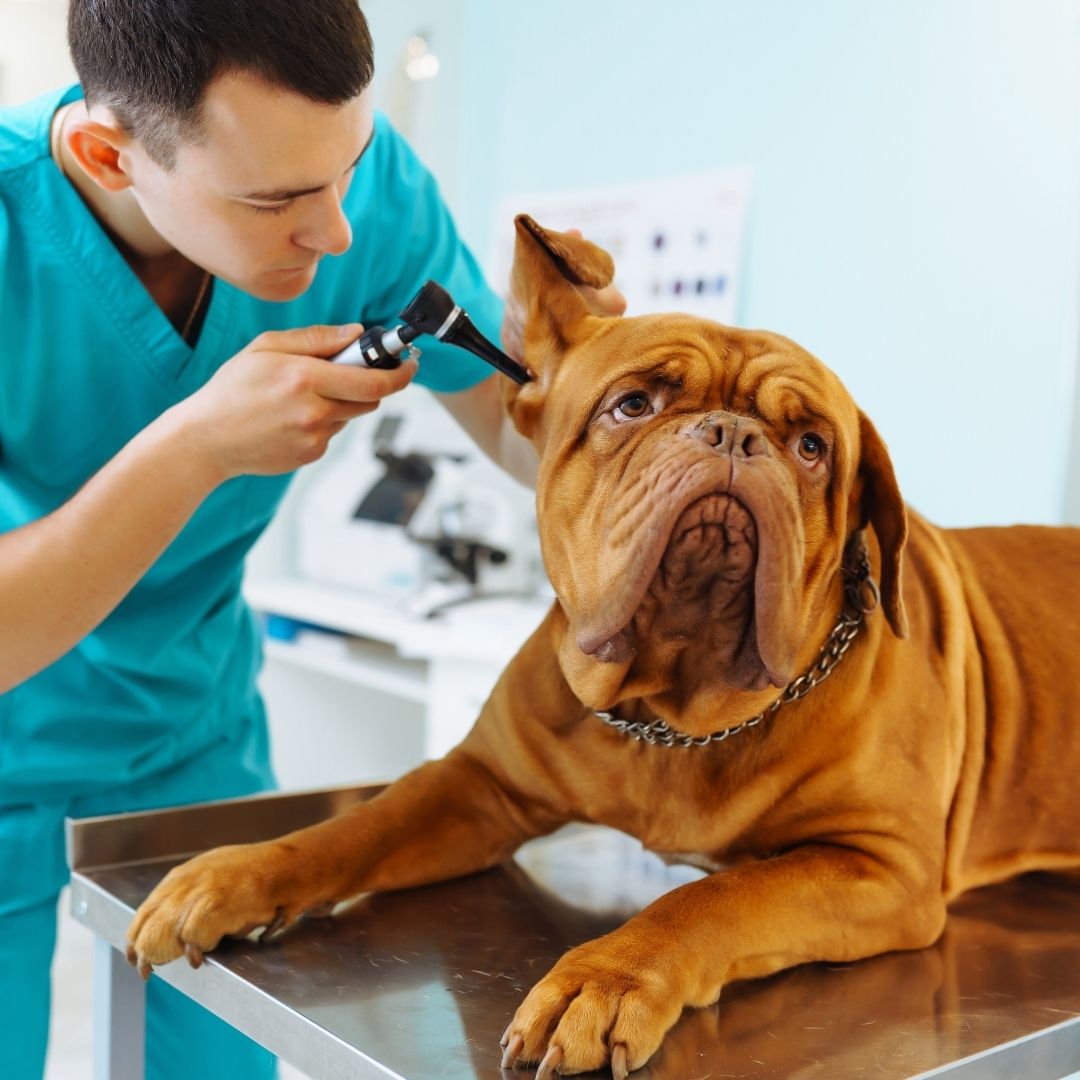

Adult Pets
All adult pets should have a wellness exam at least once a year. During your pet’s visit, you can also complete other services that should be done annually, like certain vaccines and lab testing. Your pet should also receive prescriptions for deworming and heartworm and flea prevention at their visit.
Some vaccines will need annual boosters after the initial vaccine series, like the leptospirosis and bordetella vaccines. Depending upon your pet’s vaccine history, some vaccines may only need boosters every 2-3 years. These vaccines include feline leukemia (FeLV), feline core (FVRCP), distemper/parvo (DA2PP), and rabies.
Your pet may contract intestinal parasites from going outside, licking their paws, or contact with infested pets or litter boxes. Not all intestinal parasites are visible, either, so it’s always recommended to run an intestinal parasite test at least once a year. At Essentials PetCare, the comprehensive test we run can detect parasites even if worms or eggs are not present in their stool sample!
It’s a good idea for pets to receive bloodwork and a urinalysis to catch any issues early, but this is especially important for senior pets aged 7 years and older.
Heartworm tests should be performed every 6 months to 1 year for dogs who are 6 months and older, depending upon your pet’s history of heartworm testing and prevention. This is because heartworms must be about 6 months old to be detected on a heartworm test. You can learn more about the heartworm lifecycle here.
We bundle our packages with all-inclusive pricing to make it easy for you to pick the best fit for your pet and budget.
Puppies & Kittens
Puppies and kittens should receive a veterinary exam at each vaccine visit in their initial vaccine series. The initial vaccine series should begin at 8 weeks of age for puppies and at 9 weeks for kittens, with another visit at 12 weeks, and then subsequent visits every 4 weeks to the end of the vaccine series, which is usually between 16-24 weeks of age. We bundle the puppy and kitten series into easy packages, so you know what to expect at your visit.
Puppies and kittens should have an intestinal parasite test at least twice during their vaccine series, as it is common for young pets to have received parasites from their mothers. Whenever an intestinal parasite test result is positive, it’s always important to recheck after treatment to determine if further treatment is necessary.
Even if you plan on keeping your kitten indoors, a FeLV/FIV test is always recommended at the first visit, followed by the FeLV vaccine series to protect your kitten from this very serious feline disease.
After you complete your puppy’s initial puppy visit, you’ll want to plan on bringing your puppy back in 6 months for their first heartworm test, unless otherwise directed by your veterinarian.
Preventative Medication
Regular heartworm and flea prevention is important for all pets. Heartworm prevention is given monthly, but some flea preventatives may be given every 3 months. You can also opt for a 2-in-1 heartworm and flea preventative. Many preventative medications also deworm, so discuss your options with our team at your next visit to pick the best preventative medications for your pet.
Essential Tip: When your pet visits Essentials PetCare, you’ll receive reminders when your pet is due for veterinary services so you don’t miss any important care! Find the best package for your pet to begin a lifetime of wellness with us.

